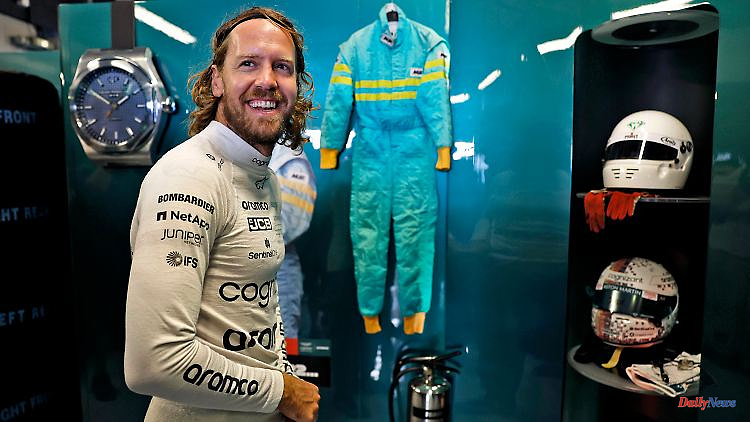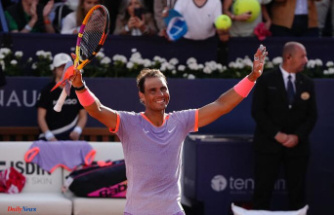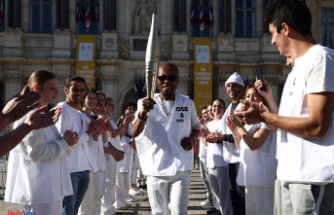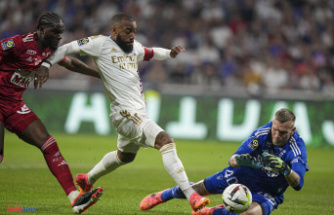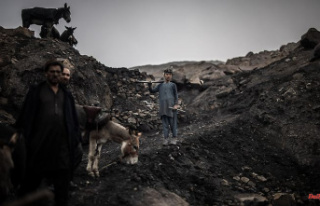He collects rubbish, builds hotels for bees and supports minorities. Sebastian Vettel is not exactly the typical Formula 1 driver. He now enjoys a great reputation worldwide. In view of his career in the premier class, this is not necessarily a matter of course.
Great careers can often be traced at extraordinary milestones. In moments that define athletes, that are remembered for a long time and that are immediately present when they are spoken about. If only because overall considerations would be far too extensive if they had to include 16 years in Formula 1, as with Sebastian Vettel. 299 race starts go into the statistics for the German, 122 podium places, 53 wins, 57 pole positions. More than 3000 championship points, 3501 laps in the lead, over 18,000 kilometers in first place, with which he won four world championship titles. The numbers alone make it clear that someone is leaving at the end of the season who will go down in history as one of the greatest the sport has ever seen.
Sebastian Vettel takes his first big step towards becoming a legend in Italy. The catchphrase "Monza 2008" is probably already enough for many long-time fans to have the pictures right in front of their eyes again. How a 21-year-old used the rainy conditions in the Toro Rosso, which actually had no chance, to first drive to pole position and then from there to victory. "Grande, grande, grandissimo", Vettel radioed to his pits after qualifying, almost 24 hours later he was at a loss for words when his team told him twice to be sure: "You have won the Italian Grand Prix, you have won the Italian grand prix." By this weekend at the latest, many will realize why this boy from Hesse is considered a special talent.
"Istanbul 2010" brought the first sustainable low point, although Vettel, who had been promoted to Red Bull, and teammate Mark Webber were leading the World Championship with equal points before the Turkish Grand Prix. On the way to the supposedly certain double victory, the two collide, Vettel retires angrily, while Webber saves at least third place to the finish. In the following races, the young German falls back in the overall standings, apparently hopelessly, before "Abu Dhabi 2010" goes down as one of the most memorable season finales in the history of Formula 1. However, the crash in Turkey lingers on for years and becomes a symbol of overzealousness.
Vettel only goes into the weekend third in the World Championship behind Webber and Fernando Alonso, who supposedly decided the title among themselves in November 2010. From pole position, however, the outsider determines the race, while the two favorites fall behind due to a safety car phase and complain louder with every lap they do in midfield. Because they have to let the 23-year-old Heppenheimer drive away, who is supposed to fill the big gap in success that arose with Michael Schumacher's Ferrari farewell in Germany.
Vettel wins, with the black and white checkered flag, the wait begins on the pit radio until the decisive cars have crossed the finish line. "Rosberg is fourth, Kubica is fifth", then follows the legendary cry: "YOU ARE WORLD CHAMPIONS!" It's the first time he's leading the World Cup. Because he shows an outstanding performance at the decisive moment. The answer from the youngest Formula 1 champion to date is much quieter, with tears of joy in his eyes Vettel says: "Thank you guys, I love you. Unbelievable."
In the 2011 season, Vettel dominated so much that at times the spectators were bored and the competition felt despair. Five wins from the first six races, 15 pole positions in 19 qualifying sessions, the title defense succeeds at the fourth to last Grand Prix. Allegations are raised that anyone can win with the superior Red Bull. "Brazil 2012" is much more dramatic, when Vettel leads the World Cup, but turns after a few meters and falls back to the end of the field. Fernando Alonso benefits, the title is a long way off Despite the damaged car, the 25-year-old fought his way up to sixth place. In the end, it was just enough to win the world championship for the third time in a row. One of his greatest achievements.
On the way to the fourth title, it's "Multi 21" that makes the headlines. "Multi 21, Seb," Mark Webber accuses his teammate as the two Red Bull drivers wait for the award ceremony after the Malaysian Grand Prix. "Multi 21" had radioed the pits to both drivers, a poorly disguised stable order to get Webber (car number 2) ahead of Vettel (number 1) safely to the finish line. But Vettel has other plans, pulls past with a hard maneuver and then says he's "not happy that I won, I made a mistake". That hardly changes anything about the boos that rain down on him.
It's the time when Vettel's public standing and popularity with fans seems to be at an all-time low. Nobody has questioned his talent for a long time, his temperament at the wheel and the protective hand that team boss Christian Horner and Red Bull advisor Helmut Marko sometimes seem to have over him, generate rejection in many places. In terms of sport, however, Vettel is in a class of its own this season. After the summer break, he wins all nine races, setting a Formula 1 record that has not been equaled to this day. With 397 points, Vettel scored even more points than the second-placed Mercedes team in the constructors' championship.
"Malaysia 2015" brings the next big Vettel moment. He has now left Red Bull and switched to Ferrari. The Scuderia thirsts for success and is counting on the German not only leading himself but also the team back to old strength after a weak year. In Sepang, he succeeded in the second race in red. "Wooooooohoooooo," Vettel radioed happily to the pits, followed by a long drawn-out "YEEEEEEESSSSS!" and "Forza Ferrari!". Italy celebrates him as a savior who can free the traditional racing team from its longing for the title. In Singapore he gets the first Ferrari pole after 61 unsuccessful attempts. The prophecy seems to be fulfilled.
Two years later, the night race on the demanding Marina Bay Street Circuit brings significantly less joy. "Singapore 2017" is the accident at the start on a wet track that caused Vettel, teammate Kimi Räikkönen and Max Verstappen, who was still young at the time but who was chosen by Red Bull to be the super-talented successor to the German, to retire after just a few seconds. Vettel had led the World Cup until the summer break, now it is slipping away from him. It is the second accident in that season that will be remembered. "Baku 2017" describes a freak out where nobody would have been surprised if the relationship with Lewis Hamilton had suffered as a result.
When the safety car drives off in front of the field at the Azerbaijan Grand Prix, Hamilton wants to keep his distance. Vettel seems to overlook this, brakes too late and breaks his front wing at the rear of the Mercedes. Furious, the German drives off the ideal line, pulls alongside his World Championship rival - and suddenly steers his Ferrari to the right to cause a collision. Both can continue, Vettel receives a hard, ten-second stop-and-go penalty a little later and can be happy that there was no disqualification. There he is again, the uncontrollable firebrand, many think. Hamilton and Vettel are now laughing about it, saying before the 2022 season finale in Abu Dhabi that working through this moment strengthened their friendship.
The sympathy for the German is significantly greater when "Germany 2018" happens. When Vettel not only leads the German Grand Prix in Hockenheim, but also the world championship. With 15 laps to go, rain slowly sets in, he loses control of his car and slides into the barriers in a left-hand bend. The pain in his voice is audible as he yells "Fucking shit" and then "I'm sorry." Hamilton inherits the victory, dominates the rest of the season - and in retrospect thwarts Vettel's last real chance for a fifth world title.
After that, the special moments become rarer, in 2019 the 53rd and presumably last Grand Prix victory, again in Singapore. In 2020 it is only enough for a single podium place, the rain in Istanbul flushes the hopelessly inferior Ferrari to third place. The move to Aston Martin followed. A team that wants to fight for victories with great ambitions, but is currently mostly trying not to finish last. Not only are the results changing, Vettel's focus seems to be changing too.
The driver, long considered dogged and over-ambitious, has gained more and more sympathy over the years, shows himself to be a good loser, a fair athlete and is increasingly showing what is important to him outside the race track. In Saudi Arabia he organizes a kart race for women, in Austria he builds a bee hotel, in Hungary he protests against the oppression of LGBTQIA, after the British Grand Prix he stays longer to collect rubbish, Formula 1 is pushing for it Beginning of the Russian war of aggression led to the cancellation of the Sochi race. The images of how the multi-millionaire comes to the paddock by bike go around the world again and again.
"What does the future mean?" Vettel asks now when he announces his departure. He would like to spend "more time with my family". He lives with his wife on a former farm and would like to see their three children grow up there with her. The 35-year-old has also dedicated himself to the fight against the climate crisis for them. "Talking is no longer enough and we cannot afford to wait. There is no alternative." Again and again he holds up the mirror to Formula 1 to emphasize its technical pioneering role again. Far beyond motorsport, he has achieved a position that gives him a voice and which he consistently uses and exploits for his values.
The remaining ten races will be a farewell tour for someone who has studied and absorbed Formula 1 and its history like no other. This love for the sport is also responsible for perhaps the last legendary moment that Vettel leaves behind. Unlike the Aston Martin driver, who only found his way onto social media shortly before his farewell announcement, Formula 1 has been producing formats worth seeing for years. Including "Grill the Grid", in which the drivers have to answer questions.
Sometimes it's about recognizing the tracks based on the outlines, sometimes about arranging the field of drivers according to their height, sometimes about naming the countries in which Formula 1 has already been a guest in its 72 years. Vettel's hour came when it was necessary to list all world champions in chronological order from today to 1950. While most pilots give up names after ten, some after 20, Vettel only briefly asks how much time he has. "As much as you need," he gets as an answer - before he lists all 72 in less than 150 seconds in a relaxed manner. Because the big milestones are easier to remember.
This text first appeared in a similar form on July 28, 2022

